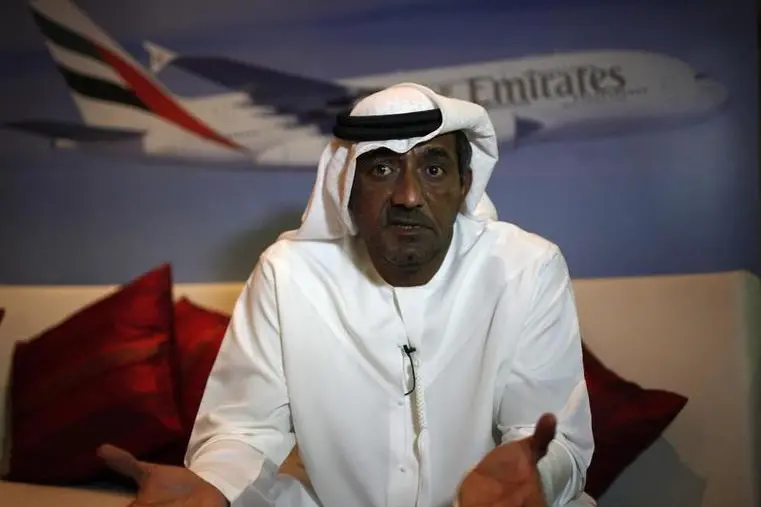PHOTO
By Alexander Cornwell
DUBAI, April 25 (Reuters) - Passenger demand on flights to United States cities where Emirates airline is not cutting its services is "holding," chairman Sheikh Ahmed bin Saeed al-Maktoum said on Tuesday.
The Dubai-based company announced last week it would reduce flights to five U.S. cities from May after a decline in demand that it blamed on President Donald Trump's travel restrictions.
Emirates flies to 12 cities in the U.S and is reducing frequencies to Fort Lauderdale, Orlando, Seattle, Boston, and Los Angeles. Other destinations such as New York, Houston and Chicago are not impacted.
Sheikh Ahmed said Trump's attempts to ban refugees and citizens of some Muslim-majority countries from travelling to the U.S. prompted a lot of people not to travel.
Trump twice tried to ban refugees and citizens of some Muslim-majority countries in the Middle East from travelling to the U.S., though both moves were ultimately blocked by U.S. federal judges.
Emirates has said it would redeploy the capacity it is taking out of the U.S. elsewhere and Sheikh Ahmed identified Far East and Africa as possible markets.
He said the airline could pick from nearly 100 destinations globally to launch flights to.
Earlier, Emirates' Dubai International Airport hub reported a 4.3 percent decline in North American passenger traffic for March.
"We are putting a lot of pressure on the U.S. to take a slightly different view," Dubai Airport Chief Executive Paul Griffiths said of the ban on laptops and other large electronic devices from passenger cabins of direct flights to the U.S. from the United Arab Emirates.
Other Middle East countries are also affected by the ban.
Emirates would continue resisting lobbying efforts to block the airline's access to the United States, which have appeared more vocal since Trump won office, Sheikh Ahmed said.
Emirates, like Qatar Airways and Etihad Airways, has faced more than two years of opposition in the U.S. led by major carriers American Airlines, United Airlines and Delta Air Lines.
The U.S. carriers have lobbied the U.S. government to investigate claims the Middle East rivals have received billions of dollars in state aid, which those airlines deny.
In February, Trump told a group of U.S. airline executives he knew they were under pressure from foreign airlines but that those airlines "come with big investments".
Emirates is expected to soon release its financial results for the year ending March 31. It reported a 75 percent half-year profit drop in November.
Sheikh Ahmed said the airline would report a profit despite a "tough year" where stiff competition drove down airfares.
(Editing by Tom Heneghan) ((alexander.cornwell@thomsonreuters.com;))





















